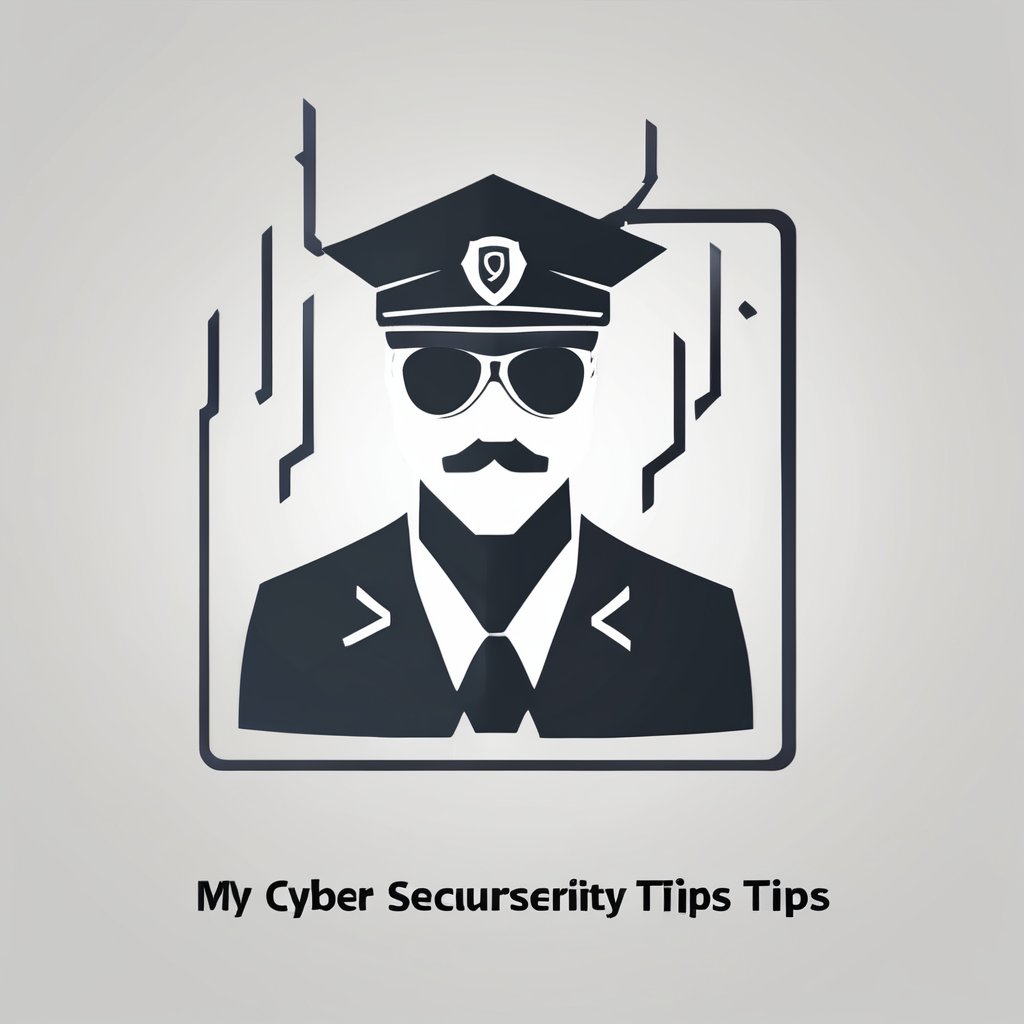Ever wondered how you can sharpen your cybersecurity skills in a safe and controlled environment? Look no further than hacking labs. These specialized platforms offer a playground for both beginners and seasoned professionals to test their skills, learn new techniques, and stay ahead of the ever-evolving world of cyber threats. In this article, we’ll explore how you can maximize your potential by diving into hacking labs.
What are hacking labs?
Hacking labs are virtual environments designed to simulate real-world cybersecurity scenarios. They provide a safe space where individuals can practice ethical hacking, penetration testing, and other security-related skills without the risk of causing harm. These labs often include a variety of challenges and exercises that range from basic to advanced levels, catering to different skill sets and learning goals.
Also to see : Essential services of an eu data protection officer for life sciences
Types of hacking labs
There are several types of hacking labs available, each serving a unique purpose:
- CTF (Capture The Flag) Labs: These labs are often used in cybersecurity competitions where participants solve challenges to capture flags. They are excellent for learning and testing skills in a competitive environment.
- Penetration Testing Labs: These labs focus on simulating real-world penetration testing scenarios, allowing users to practice identifying and exploiting vulnerabilities in a controlled setting.
- Virtual Machines: These labs provide pre-configured virtual machines that users can use to practice hacking techniques without affecting their own systems.
- Cloud-Based Labs: These labs are hosted in the cloud, providing easy access and scalability for users who want to practice without the need for local hardware.
Benefits of using hacking labs
Engaging with hacking labs can offer numerous advantages for anyone looking to enhance their cybersecurity skills. Let’s dive into some of the key benefits:
Also read : Top Strategies for Safeguarding Containerized Applications in Your Kubernetes Cluster
Skill development
Hacking labs provide an excellent platform for skill development. Whether you’re a beginner looking to learn the basics or an experienced professional aiming to refine your techniques, these labs offer a structured way to practice and improve. For instance, you might start with simple challenges like SQL injection or cross-site scripting (XSS) and gradually move on to more complex scenarios involving network exploitation or social engineering.
“The best way to learn hacking is by doing it in a controlled environment where you can make mistakes and learn from them,” says John Smith, a cybersecurity expert at CyberSec Solutions.
Real-world simulation
One of the most significant advantages of hacking labs is their ability to simulate real-world scenarios. This means you can practice dealing with actual security threats and vulnerabilities in a way that closely mimics what you might encounter in your professional life. For example, a lab might simulate a corporate network with various security measures in place, challenging you to find and exploit weaknesses just as you would in a real-world penetration test.
Safe learning environment
Perhaps the most crucial benefit of hacking labs is the safe learning environment they provide. You can experiment with hacking techniques without the fear of causing harm to real systems or networks. This safety net allows you to take risks and try new approaches, which is essential for learning and growth in the cybersecurity field.
How to get started with hacking labs
Getting started with hacking labs might seem daunting at first, but with the right approach, you can quickly find your footing and start honing your skills. Here’s a step-by-step guide to help you get started:
Choosing the right lab
The first step is to choose a hacking lab that aligns with your learning goals and skill level. Consider the following factors when making your decision:
- Skill Level: Some labs are designed for beginners, while others cater to more advanced users. Make sure you choose a lab that matches your current skill level to get the most out of your experience.
- Focus Area: Different labs focus on different aspects of cybersecurity, such as web application security, network security, or mobile security. Choose a lab that aligns with your specific interests and career goals.
- Community and Support: Look for labs that have an active community and good support resources. This can be invaluable for getting help when you’re stuck and learning from others in the field.
- Cost: Some labs are free, while others require a subscription or one-time payment. Consider your budget and the value you expect to get from the lab when making your decision.
- Accessibility: Make sure the lab is accessible from your preferred devices and operating systems. Some labs may require specific software or hardware configurations.
Setting up your environment
Once you’ve chosen a lab, you’ll need to set up your environment. This might involve installing specific software, configuring virtual machines, or setting up a cloud-based environment. Follow the lab’s instructions carefully to ensure everything is set up correctly. For example, if you’re using a virtual machine lab, you might need to download and install software like VMware or VirtualBox.
Starting with basic challenges
Begin with the basic challenges offered by the lab. These are designed to help you get familiar with the platform and build your confidence. For instance, you might start with a simple challenge like finding a hidden file on a web server or exploiting a basic SQL injection vulnerability. As you complete these challenges, you’ll gain a better understanding of the lab’s interface and the types of tasks you’ll be working on.
Advanced techniques and strategies
Once you’re comfortable with the basics, it’s time to dive into more advanced techniques and strategies. This section will cover some of the more complex skills you can develop in hacking labs.
Exploiting complex vulnerabilities
As you progress in your hacking lab journey, you’ll encounter more complex vulnerabilities that require advanced techniques to exploit. For example, you might learn how to exploit buffer overflow vulnerabilities, which involve manipulating memory to execute arbitrary code. These challenges require a deep understanding of programming languages and system architecture, but they can significantly enhance your skills.
Developing custom tools
Another advanced strategy is developing custom tools to aid in your hacking efforts. Many experienced hackers create their own scripts and tools to automate tasks, gather information, or exploit vulnerabilities more efficiently. For example, you might develop a Python script to automate the process of scanning for open ports on a target system. This not only improves your efficiency but also deepens your understanding of the underlying technologies.
Participating in CTF competitions
Participating in Capture The Flag (CTF) competitions is an excellent way to test your skills and learn from others. These competitions often involve solving a series of challenges within a set time frame, and they can be incredibly rewarding. For instance, you might participate in a CTF competition that involves cracking encrypted messages, exploiting web application vulnerabilities, or reverse engineering malware. These experiences can help you think on your feet and apply your skills in a high-pressure environment.
Common challenges and how to overcome them
While hacking labs offer a wealth of opportunities for learning and growth, you may encounter some common challenges along the way. Here’s how to overcome them:
Feeling overwhelmed
It’s natural to feel overwhelmed when you first start using hacking labs, especially if you’re new to cybersecurity. To overcome this, start with the basics and gradually build your way up. Don’t be afraid to ask for help from the lab’s community or online forums. Remember, everyone starts somewhere, and the key is to keep learning and practicing.
Staying motivated
Staying motivated can be a challenge, especially when you’re working through complex challenges. To stay motivated, set clear goals for yourself and celebrate your achievements along the way. You might also consider joining a study group or finding a mentor who can provide guidance and encouragement.
Dealing with frustration
Frustration is a common emotion when working through hacking labs, especially when you’re stuck on a particularly difficult challenge. To deal with frustration, take breaks when needed, and try approaching the problem from a different angle. Sometimes, stepping away from the challenge for a while can help you come back with a fresh perspective.
Tools and resources to enhance your hacking lab experience
To get the most out of your hacking lab experience, it’s essential to have the right tools and resources at your disposal. Here are some recommendations:
Essential software
Here are some essential software tools that can enhance your hacking lab experience:
- Kali Linux: This is a popular operating system specifically designed for penetration testing and digital forensics. It comes pre-loaded with a wide range of hacking tools.
- Metasploit: A powerful framework for developing and executing exploit code against a remote target machine. It’s widely used in penetration testing and ethical hacking.
- Wireshark: A network protocol analyzer that lets you capture and interactively browse the traffic running on a computer network. It’s invaluable for understanding network communications and identifying vulnerabilities.
- Nmap: A network scanning tool used to discover hosts and services on a computer network, thereby building a “map” of the network. It’s essential for reconnaissance in hacking labs.
- Burp Suite: A platform for web application security testing. It’s widely used for tasks like scanning for vulnerabilities, intercepting and modifying HTTP requests, and more.
Online communities and forums
Engaging with online communities and forums can be incredibly beneficial for your learning journey. Some popular platforms include:
- Stack Overflow: A Q&A platform where you can ask questions and get answers from experienced professionals in the field.
- Reddit: Subreddits like r/netsec and r/hacking are great places to connect with others, share knowledge, and get advice.
- Hack The Box Forums: If you’re using the Hack The Box platform, their forums are an excellent resource for getting help and sharing your progress.
Educational resources
There are numerous educational resources available to help you learn and grow in the world of cybersecurity. Some recommendations include:
- Cybrary: An online platform offering free and paid courses on various cybersecurity topics, including ethical hacking and penetration testing.
- Udemy: A wide range of courses on cybersecurity, from beginner to advanced levels, often at affordable prices.
- Cybersecurity Books: Books like “The Web Application Hacker’s Handbook” by Dafydd Stuttard and Marcus Pinto, and “Hacking: The Art of Exploitation” by Jon Erickson are highly recommended for in-depth learning.
Comparing popular hacking labs
There are several popular hacking labs available, each with its own strengths and weaknesses. Here’s a comparison of three well-known platforms:
| Lab | Focus | Skill Level | Cost | Community Support |
|---|---|---|---|---|
| Hack The Box | CTF, Penetration Testing | Beginner to Advanced | Free (Basic), Paid (VIP) | Active forums and community |
| TryHackMe | Learning, CTF | Beginner to Intermediate | Free (Basic), Paid (Subscription) | Supportive community and guided learning paths |
| OverTheWire | CTF, Wargames | Beginner to Advanced | Free | Active community and forums |
Each of these labs offers unique features and benefits. Hack The Box is known for its challenging CTFs and realistic scenarios, making it a favorite among advanced users. TryHackMe is excellent for beginners and intermediate learners, with its guided learning paths and supportive community. OverTheWire is a great option for those looking for free, community-driven challenges that cover a wide range of topics.
Real-world applications of skills learned in hacking labs
The skills you develop in hacking labs have numerous real-world applications. Here are some examples:
Penetration testing
Penetration testing, or pen testing, is a critical service in the cybersecurity industry. By simulating cyber attacks on a system, pen testers help organizations identify and fix vulnerabilities before malicious hackers can exploit them. The skills you learn in hacking labs, such as exploiting vulnerabilities and using hacking tools, are directly applicable to this field.
“Penetration testing is all about thinking like a hacker to find weaknesses before they can be exploited. Hacking labs are the perfect place to develop these skills,” says Jane Doe, a certified penetration tester at SecureTech.
Incident response
Incident response involves managing and mitigating the aftermath of a security breach. The skills you develop in hacking labs, such as analyzing malware and understanding attack vectors, can be invaluable in this role. For instance, if a company’s network is compromised, you might use your hacking lab experience to help identify the entry point and contain the damage.
Security consulting
As a security consultant, you advise organizations on how to protect their systems and data. The hands-on experience you gain in hacking labs can help you provide more informed and practical advice. For example, you might use your lab experience to recommend specific security measures based on the types of vulnerabilities you’ve encountered and exploited.
Hacking labs are an invaluable resource for anyone looking to develop their cybersecurity skills. Whether you’re a beginner or an experienced professional, these labs offer a safe and controlled environment to practice, learn, and grow. By choosing the right lab, setting up your environment, and engaging with the community, you can maximize your potential and prepare for a successful career in cybersecurity.
“The journey of a thousand miles begins with a single step. In the world of cybersecurity, that step can be taken in a hacking lab,” says cybersecurity expert, Robert Johnson.
So, what are you waiting for? Dive into the world of hacking labs and unlock your potential today!











